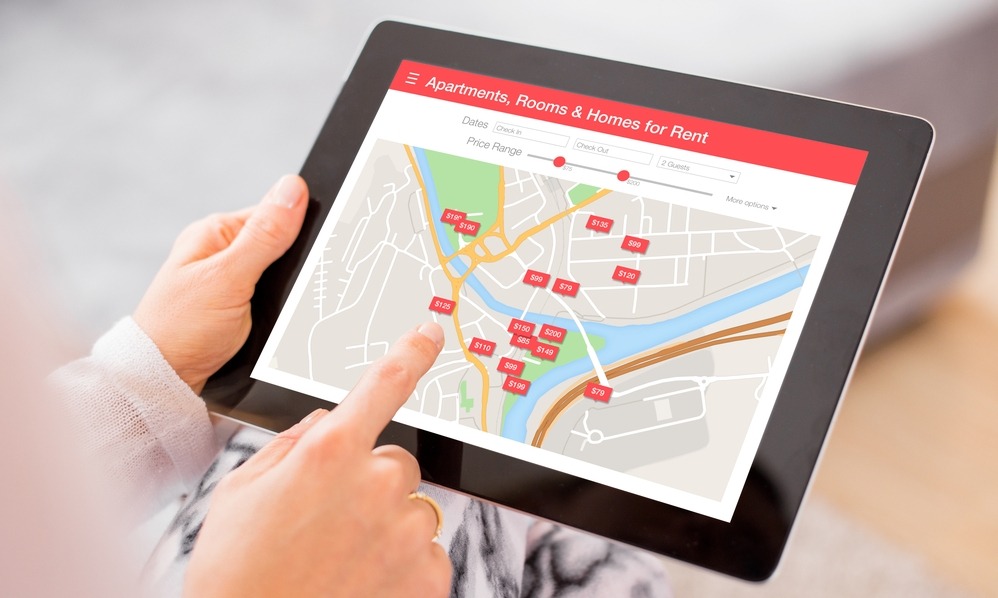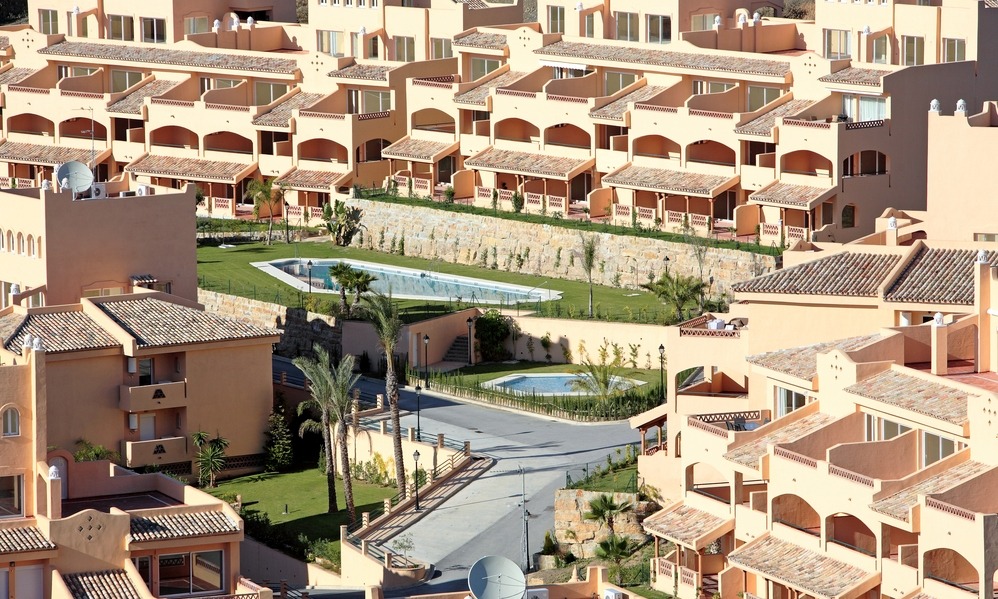Many of us plan to help pay for our property in Spain via the new “sharing economy” of online sites like Airbnb and HomeAway. New rules are making this more difficult, but in the end it should be good for Spain’s tourist economy and all property owners.
Recently tourist rental sites such as Airbnb, Housetrip, Owners Direct and HomeAway have been experiencing problems in many countries and especially in Spain, where they have been fined for displaying unlicensed rental properties on their websites. Prior to 2011 it wasn’t necessary for a homeowner to apply for a licence to let out their house or apartment on a temporary basis but the scene has changed since then and not only websites but also property owners are receiving fines for non compliance.
FIND a rentable home in Spain from thousands of listings
Find homes in Spain via our property portal.
The hotel lobby
Catalonia was the first Spanish region to introduce a licensing system for tourist rentals, claiming that it would ensure standards remained high. It followed heavy lobbying by the hotel industry which considers it “unfair” competition, as a homeowner has fewer overheads than a commercial establishment such as a hotel.
The introduction of a licensing scheme caught out property owners who had for years been letting out their properties to tourists without declaring their earnings and therefore evading tax.

Offering online rentals in Spain: you need to know the rules
Eventually more regions decided to follow suit but they all have slightly different requirements for obtaining a tourist letting licence. In Barcelona there is a moratorium on any new licences. The city is struggling with the increasing number of tourists staying in private apartments, who are often blamed for disturbing the daily life of others in the block or nearby. The hotels complained too, saying their businesses were at a disadvantage, so the new mayoress and the council stopped the granting of new licences. The same has happened in the Canary Islands.
Now most of the costas and larger cities require owners to register their properties as tourist accommodation, the most recent being Andalusia. There are two results of this: those properties which already own a licence are selling for inflated prices, while the schemes are steering tourism towards hotels which some potential tourists find too expensive.
Letting rules
Each region has its own rules and regulations. In Andalusia, for example, the rental property must be fitted with smoke alarms, which is sensible, but also with permanent fixtures for air conditioning and heating, when portable ones would surely do as well.
In Mallorca owners must get the agreement of neighbours before they can let out their property
In Mallorca owners must get the agreement of neighbours before they can let out their property and single dwellings must have been built before 1960. Under the Urban Rental Law, advertising your property for rental on websites for “days” is illegal. So, for example, putting an advert on Airbnb for weekly lettings is against the law. You can rent your property out for “days” but you cannot legally advertise it on a holiday letting portal, only through a local estate agent. Other areas of Spain allow advertising provided the licence number given by the local authority is clearly displayed.

A representative of the town council in your region will pay a visit to check that your holiday letting fulfils local requirements.
You can expect a representative of the town council in your region to pay a visit to check that your holiday letting fulfils local requirements. Much of this is to confirm that the property is in a fit state to be let out and that safety rules have been adhered to. Few would complain about this. The wise property owner will ensure that their apartment or villa has a modern bathroom with air extraction, an up-to-date kitchens with extractor fans and air vents if gas is being used, not forgetting smoke alarms, a fire blanket and other safety features.
In Catalonia property owners have to inform the region’s police force, the Mossos d’Esquadra, of the passport details of each guest over the age of 16, just as hotels do. You can send the information online once you have opened an account with the Mossos and should do so within 24 hours of the guest’s arrival.
Paying taxes
With the introduction of licensing in much of the country, Hacienda, the Spanish tax authority, is actively seeking out property owners who continue to let their properties to tourists without declaring income derived. All rental earnings must be declared and the fines for not doing so can be extremely high.
A four-bedroom apartment near the beach in Catalonia, let to tourists for five months of the year, can bring in €20,000
When you stay in a hotel in Spain, you pay a tourist tax, the price varying from region to region and city to city. Now tourist taxes are applicable to private lettings as well and it is up to the property owner to collect them and to present a declaration to their local tax authority once a year. The tourist tax is just 60 cents per person per day, but this quickly mounts up if you regularly have a family or two staying in your property. For four adults the tax amounts to €16.80 a week, which must be handed over to your local tax office.
The right way to rent
Despite all the bureaucracy and hassle, letting out your property to tourists can still be a very useful source of income. A four-bedroom apartment in Catalonia just a few steps from the beach, let to tourists for five months of the year, can bring an income of over €20,000 before tax. Those with larger villas in good locations can expect considerably more. You do though need to treat the rentals as a business, no longer can it be a “little earned on the side.”
Each region has its own rules, but here is some general advice:
- Visit your local town hall to find out exactly what they require for tourist rentals.
- Assuming your property complies with these requirements, apply for your licence. There will be a fee involved, depending on the size and location of the property. There is also likely to be a longish wait for the licence to come through as it has to be approved by the regional government too.
- If required, open an account with the local police so that you can send details of
guests directly. You will need to collect a form from the police station or in some
cases you can apply online. - You will have to give a telephone number so that someone can be contacted 24
hours a day by the guests. If you have a management agency, it is their number
you need to declare. - You may need to state if you offer services such as cleaning and babysitting. Avoid this
if possible as it will complicate matters and put you into another category equal to campsites and hotels. - If you use an agency to manage your property, you will need to give their details
on your licence application form. This is a good option for property owners who
do not live full time in Spain but of course they will charge anything up to 25 percent for
their services. - It is up to you to decide whether to include the tourist tax in the rental price or add
it on top. Whatever the decision, you will have to pay the amount taken quarterly
or annually. Management agencies will usually include this in their services. - If advertising on portals such as Airbnb and HomeAway, clearly display your licence
number and better still, mention that the property is licensed in the body of the
text as well. - Licenced properties must leave complaint forms for guests. These can be downloaded
and printed. There should also be a certificate on display stating the licence number,
maximum number of guests permitted, legal owner and telephone number for contact.
Many thousands of British people successfully let their properties for the summer season
It may all sound a little daunting but actually it is bringing private tourist rentals more in line with commercial ones, and for good reason. Many thousands of British people successfully let their properties for the summer season and once all the documentation is in place, it isn’t all that difficult to manage. The Spanish tax authority is trawling rental websites to track down unlicensed premises being advertised, as they assume if it is unlicensed then no tax is being paid on the revenue. In the end it is much cheaper to apply for a licence than to hope you will stay under their radar and if discovered, face a very hefty fine.















